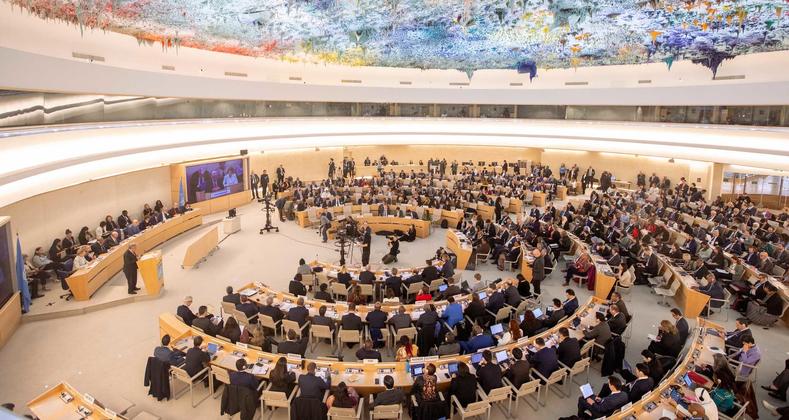The mandate of the Special Rapporteur on the situation of human rights in Russia was established by the 47-member Council in October 2022, and it was extended last October. The Special Rapporteur is responsible for monitoring, assessing, and reporting on the human rights situation in Russia. The current mandate holder, Mariana Katzarova, is not a UN staff member and operates independently from the UN Secretariat.
The Council adopted a resolution with a recorded vote of 20 in favor, 8 against, and 19 abstentions, urging Russian authorities to engage fully and non-selectively with all UN human rights mechanisms. This includes constructive communication and full cooperation with the Special Rapporteur, as well as granting unhindered access for visits to Russia and meetings with relevant stakeholders. The Council also welcomed the Special Rapporteur’s recent report presented in September.
In her report, Ms. Katzarova expressed deep concern over the human rights situation in Russia, highlighting state-driven violations legalized by new or amended legislation that have restricted independent civic and political arenas in the country.
On the same day, the Council extended its probe into alleged human rights violations and abuses in Sudan, where rival militaries have been at war since April 2023. Twenty-three members of the Council voted to extend the Independent International Fact-Finding Mission for the Sudan for one year, with 12 against and 12 abstentions. The Council also condemned the escalation of attacks by the Rapid Support Forces (RSF) in El Fasher, calling for their immediate withdrawal and the protection of civilians in accordance with international law.
The three-member Independent Fact-Finding Mission was established by the Human Rights Council in October 2023 to investigate and establish the facts, circumstances, and root causes of all alleged human rights and humanitarian law-related violations. The members, Mohamed Chande Othman (chair), Joy Ngozi Ezeilo, and Mona Rishmawi, serve in their individual capacities independent of the United Nations and receive no salary.
Additionally, the UN General Assembly in New York elected new Member States to serve on the Human Rights Council for three-year terms starting 1 January 2025. The newly elected members are Benin, Bolivia, Colombia, Cyprus, Czechia, Democratic Republic of the Congo, Ethiopia, Gambia, Iceland, Kenya, Marshall Islands, Mexico, North Macedonia, Qatar, Republic of Korea, Spain, Switzerland, and Thailand. They will join the current members on the Council.
Overall, these developments highlight the ongoing efforts to address human rights violations and abuses in Russia and Sudan, as well as the commitment of the international community to uphold human rights standards and hold perpetrators accountable.









